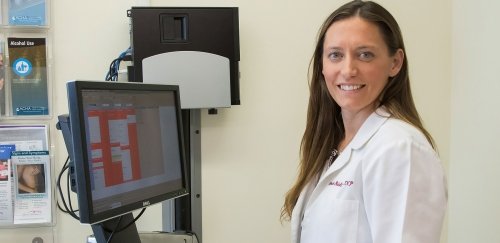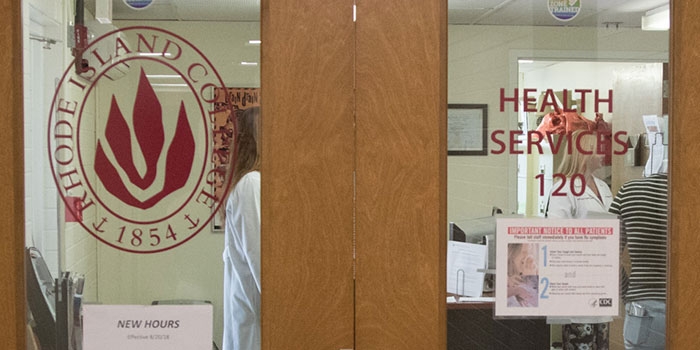Telehealth, the New Frontline for Health Care at RIC
- News & Events
- News
- Telehealth, the New Frontline for Health Care at RIC

"Telehealth is a method of providing health care remotely," explained Christie Rishworth, interim director and nurse practitioner of Health Services. "The benefit of telehealth is that it eliminates the possible transmission of infectious diseases like COVID-19 between a patient and their health-care provider."

Staffed by a physician, nurse practitioners and registered nurses, Health Services provides primary care for all students and is open by appointment only, Monday-Friday, from 8:30 a.m. to 5 p.m.
Prior to COVID-19, students would generally have their vital signs checked and undergo a physical before being treated at Health Services.
Since COVID-19, the vital signs check and physical exam are bypassed. Instead, students phone in and discuss their symptoms with a provider after which a diagnosis is made and a treatment plan given.
"If it is determined that the student needs to be treated in the office or if it isn't possible to make a final diagnosis without an exam, we will gown up in protective gear and go down to the triage room to meet the student," said Rishworth. The student will be masked and undergo a visual and verbal health screening for COVID-19 before being brought to the main office for a more detailed exam and/or other testing or treatment.
Sometimes a student may be referred to the campus Counseling Center as a part of their treatment plan. Like Health Services, the Counseling Center is using telehealth as a frontline against the coronavirus.
According to clinical psychologist Julia Kamenetsky, so far, telehealth has been a very effective replacement for in-office visits. Counseling Center staff are making use of an app called GoToMeeting. Video and audio therapy can be delivered through this app.
"There are some students who prefer the phone over GoToMeeting, and that's fine," said Kamenetsky. "It's another option. We also have some students who either don't have a private space where they can continue doing therapy or don't like the idea of not meeting face to face; however, these students are very, very few. The majority of students have transitioned to either GoToMeeting or to the phone for therapy, and the sessions have been just as rich as they were in person. I'm extremely happy that we're able to keep supporting our students."
In addition, telehealth has been the focus of a number of grant-funded projects at RIC's School of Social Work. The most current semester-long project has future social workers learning how to evaluate clients for suicide risk using an online sim client rather than a real client. Among other skills students are gaining is practice providing services remotely. (See article.)
"Many social service agencies and practitioners are moving to telehealth," said Warren Miller, RIC assistant professor of social work. "Most of my colleagues have shifted to online and telephonic telehealth. Even those who must go into the office are providing telehealth at their offices while clients are at home."
Telehealth is fast becoming the new normal throughout the health-care sector.
